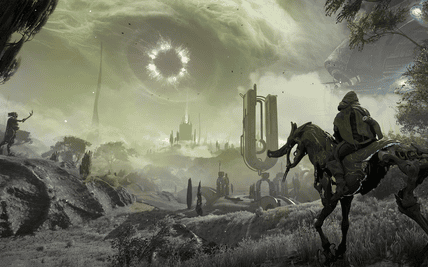
I
In Laura Jean McKay’s first novel, The Animals in That Country, a virus called “zooflu” spreads globally, granting humans the power to understand the thoughts of animals. This book received the Arthur C Clarke award for science fiction and several prestigious literary awards in McKay’s home country of Australia. In her collection of short stories, Gunflower, McKay once again showcases her exceptional talent for transforming our common perception of reality.
The themes of environmental concern, altered perspectives, and the impact of the climate crisis that were central to Animals are revisited in this work. Those Last Days of Summer tells the story from the viewpoint of battery chickens, who are unaware of their eventual fate but have glimpses of it through their shared mythology. Territory follows a community of wild boar hunters, known as “piggers,” who chase their prey in beat-up buggies. In Cats at the Fire Front, a family who breeds cats for their fur is featured, showcasing a disturbing aspect of McKay’s near future. King gives agency back to the animals as an old stag, or possibly not, fights for dominance one last time.
McKay’s first novel’s main character was primarily defined by her unwavering determination to survive. This same strength is evident in Smoko, a narrative centered around social class and poverty, taking place entirely in the real world. The story follows a group of women employed at a local supermarket, who are faced with the news that their morning cigarette break is being eliminated. Joni, who works in the deli department, takes charge and leads a petition to have the break reinstated. As the women come together in solidarity for this cause, they discover new possibilities for their own lives. Despite attempts from management to manipulate the outcome, the women’s newfound spirit of rebellion cannot be suppressed.
The difficult truth of the lives of the working class is also emphasized in Lightning Man, as a heavily burdened mother of four anxiously awaits to find out if her husband will be given a contract with a traveling circus. On the other hand, Ranging depicts a world where all husbands – and all men, in general – have mysteriously vanished from the Earth. This story, drawing inspiration from Joanna Russ and Sandra Newman, suggests that while a world without men may not be a utopia, the undeniable feeling of freedom and weightlessness due to their absence is something that every woman will inherently understand.
The main story could also be categorized as feminist science fiction. Gunflower takes place after the 2022 ruling of Roe v Wade, where abortion is only legal in a few states in the US. A ship called Gunflower, renamed for its connection to both war and reproduction, serves as a mobile abortion clinic. The ship is run entirely by women and can only provide services when in international waters. Joan, a law professor at 44 years old, unexpectedly becomes pregnant and chooses to go aboard the Gunflower to bring attention to the struggles faced by those with less resources. When communication with the mainland is lost, the crew first suspects technical difficulties before worrying about sabotage. As they brave a storm, Joan begins to see their situation as a reflection of the harmful politics in her country: “I thought to myself: I have traveled so far from home just to have control over my own body. I thought: If this is America, then there is no true America. Has there ever been?”
Although Gunflower has the appearance of a dystopian future, it reflects the uncertainty of our current world. The author, McKay, began writing her first novel in 2013 after contracting the chikungunya virus while on a trip to Bali. It is eerie to now see her second novel, Animals, published during the 2020 Covid lockdown. Her latest work, Twenty Twenty, explores the recent pandemic through the perspective of a family who denies its existence. Holly, a British woman married to an Australian homeopath and anti-vaxxer named Dan, wants to escape the strict Covid regulations in the city and takes her family to a resort on the coast. However, they are met with hostility and when Holly’s daughter and mother-in-law become ill, she chooses to ignore her suspicions about the disease that her husband claims is not real. This story is unsettling as it puts the reader at odds with the main character, similar to Those Last Days of Summer.
The focus of Flying Rods is on a peculiar sickness, initially believed to be a fever affecting a young woman. However, in the last paragraph, the true nature of her illness is revealed, along with the probable fate of her aggravating partner, Dean. This seemingly ordinary story is actually a horror tale, and author McKay’s use of imaginative elements is particularly effective due to its concise nature. Two other noteworthy works by McKay, A Sensation of Whirling and a Loss of Balance and The Two O’Clock, both feature unconventional portal fantasies and exhibit the same level of skill. Additionally, Site, in which an artist waiting for her married lover’s arrival becomes mesmerized by the sight of a ghost ship, is especially captivating.
As a writer, the short story holds great appeal for its potential for experimentation. In Gunflower, McKay not only manipulates ideas but also language itself in an exhilarating and unique way. These stories are thought-provoking, lyrical, and keenly aware of current issues. Instead of serving as an easy way out, elements of fantasy intensify the conflict and starkly reveal the challenges faced by her characters in their gritty world.
Bypass the advertisement for the newsletter.
after newsletter promotion
I was particularly impressed by the bold risks taken in this compilation, featuring short scenes, poetic pieces, and modern-day mythologizing alongside longer, more traditional stories. These brief tales, reminiscent of film stills, hold just as much power and shock value as the longer ones. Upon reading the acknowledgments, I was surprised to learn that the stories in Gunflower were written over a span of twenty years. The overall impression, in terms of both theme and technical skill, is one of cohesion and unity: not just a collection of individual works, but a carefully crafted whole. Gunflower is a timely book that demands our attention as readers, with its exceptionally gifted author’s thought-provoking messages.
Source: theguardian.com



